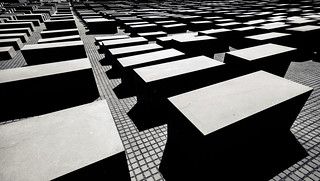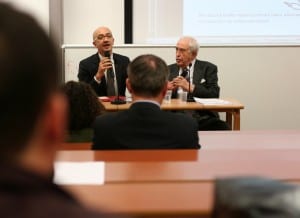Auschwitz revisited?
By ucyow3c, on 5 June 2014
![]() Written by Phil Leask, Honorary Research Associate in UCL SELCS (UCL German)
Written by Phil Leask, Honorary Research Associate in UCL SELCS (UCL German)
The Auschwitz story – murder on a vast scale, planned, programmed, administered and executed by the Nazis in accordance with an ideology – is too terrible, requiring only homage, beyond the bounds of revisiting, reinterpreting and coolly analysing.
Or is it?
That was the central question in the UCL Festival of the Arts event Awkward approaches to Auschwitz on 29 June. Three years into their major project funded by the Arts and Humanities Research Council, the Reverberations of War group from the School of European Languages, Culture and Society revisited Auschwitz. Literally.
They went there and looked, took photos, checked distances, traced the patterns of movement of those doing the killing and those taken to be killed, roamed around the vast complex beyond where the tourists go, located factories and factory sites where slave labour had been used and people had been worked to death, and tried to see it both as it had been and in its present-day context.
Then came the awkward questions …
 Close
Close





